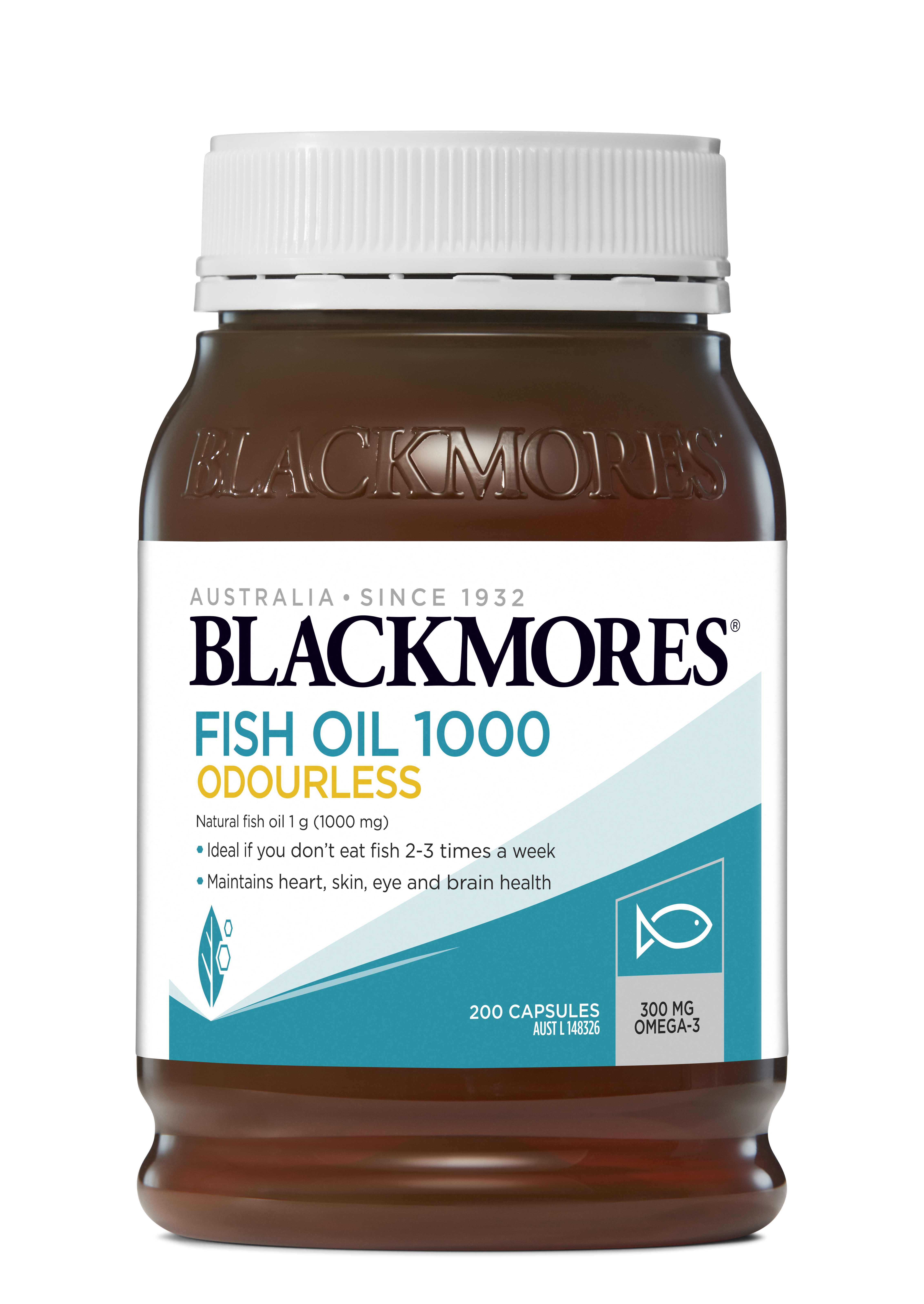
- Health hub/
- Fish & Nutritional Oils/
- Choosing the right fish oil for you


We all know that eating fish is good for us; in fact, the Heart Foundation recommends Australians eat at least two to three servings of it every week, with bonus points if it’s an oily one like mackerel, salmon or sardines. Fish is full of omega-3s, fatty acids that benefit our brain function, support skin health, promote a healthy heart and reduce inflammation.
But are you aware that 80% of Australians aren’t meeting the recommended intake for omega-3 fatty acids? That’s four out of five of us! If you aren’t meeting your recommended intake you may consider a supplement to help you consume more omega-3s. Read on for what you need to consider when selecting fish oil supplements for yourself and your family.
What are omega-3s, anyway?
Omega-3s are a cluster of essential fatty acids that play several important roles in our health and provide a number of benefits. Since our body is unable to produce them, we have to get them from our diet (primarily fish) or supplements, like quality natural fish oil.
-
Omega-3s include;
- ALA, which comes from plants, beans, seeds and nuts, fish oil doesn’t contain these naturally unless they are added
- EPA, which is found in fatty fish and fish oil and has anti-inflammatory properties and supports heart health.
- DHA is a key structural component of your retinas and brain. It’s an important building block found in cell membranes throughout the body and helps to transmit messages between nerves.
Fish oil supplements will have a mix of EPA and DHA in them for maximum benefit, but the amount of omega-3s in fish oil, including EPA and DHA will vary from about 18-31%, depending on the type of fish. This is why a typical fish oil capsule of 1000mg has about 300 mg of omega-3s.
Smell, taste and size
If you don’t like it, you won’t take it – no matter how good it is for you. Some fish oil supplements can be very strong smelling and taste of well, fish. If you have a strong sense of smell or suffer from acid reflux, this can be a dealbreaker for sure; our odourless range is definitely one to check out. Capsules can be large or small and still contain the same amount of omega-3, so larger doesn’t necessarily equal better. Look out for smaller capsule sizes if you struggle swallowing capsules.
Dosage
How much omega-3 is the right amount?
Expert opinions across various mainstream organisations vary from 200 to 4000 mg as multiple factors can impact an individual’s need. So, while there is no set recommendation on the amount of fish oil you should take, there are recommendations for DHA, EPA and your total omega-3 intake.
The recommended daily omega-3 intake for healthy women is 1,100 mg. The recommended daily omega-3 intake for healthy men is 1,600 mg.
When buying fish oil supplements, read the label to determine the amount of DHA and EPA. Usually, 1,000 mg of fish oil supplies about 300 mg of combined DHA and EPA. The recommended intake is 250 to 500.
Our Odourless Fish oil 1000 is ideal for those who don’t eat 2-3 serves of fish per week. With a vanilla-lemon flavour to reduce fishy aftertaste, they’re an easy way to take control of your health and invest in your family’s wellbeing. Adults take 2-3, and children take just one.

- Maintains heart, skin, eye and brain health
- Ideal if you don’t eat fish 2-3 times per week
- Natural source of omega-3
- Rigorously tested for mercury, dioxins and PCBs
- Supports general health and wellbeing




